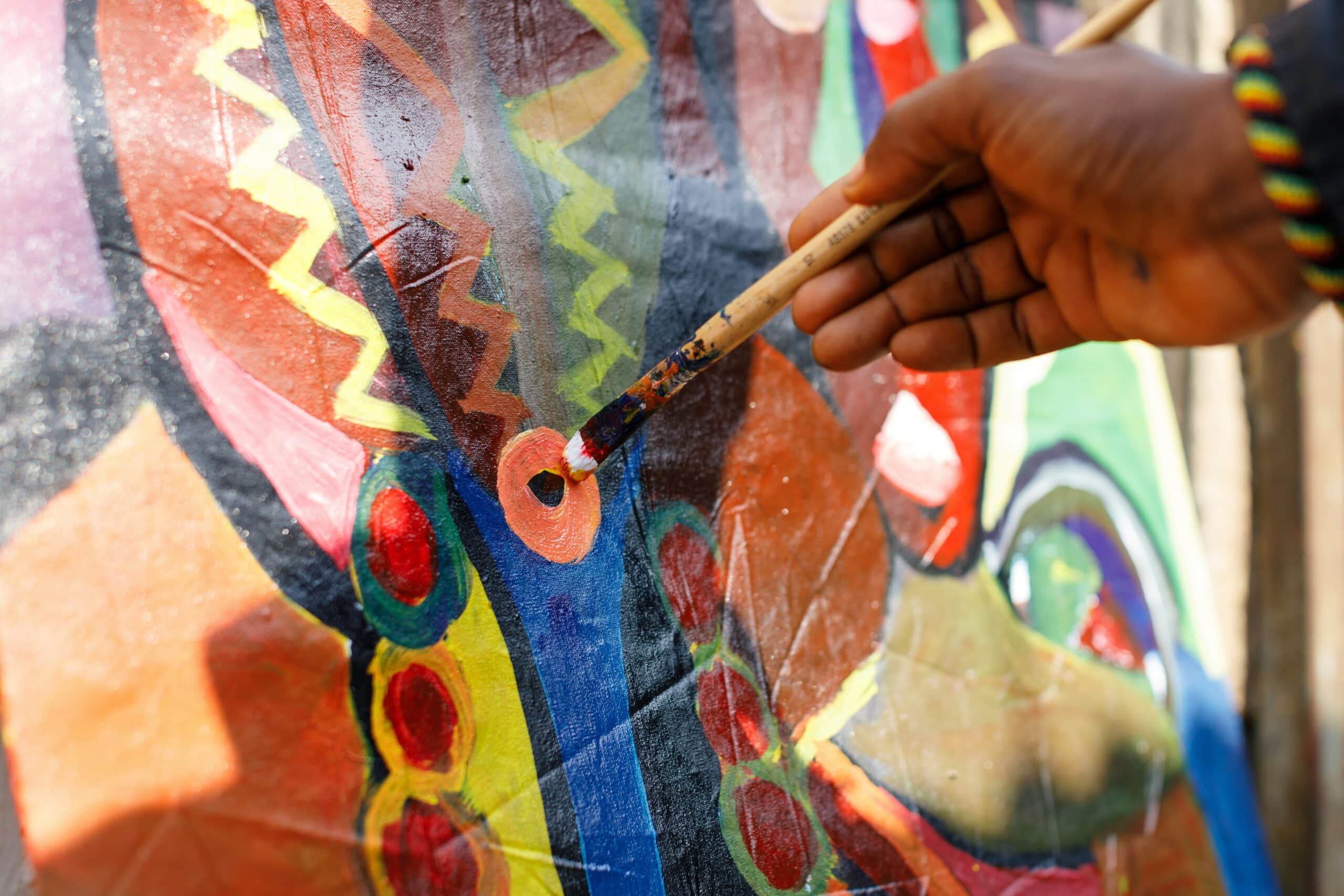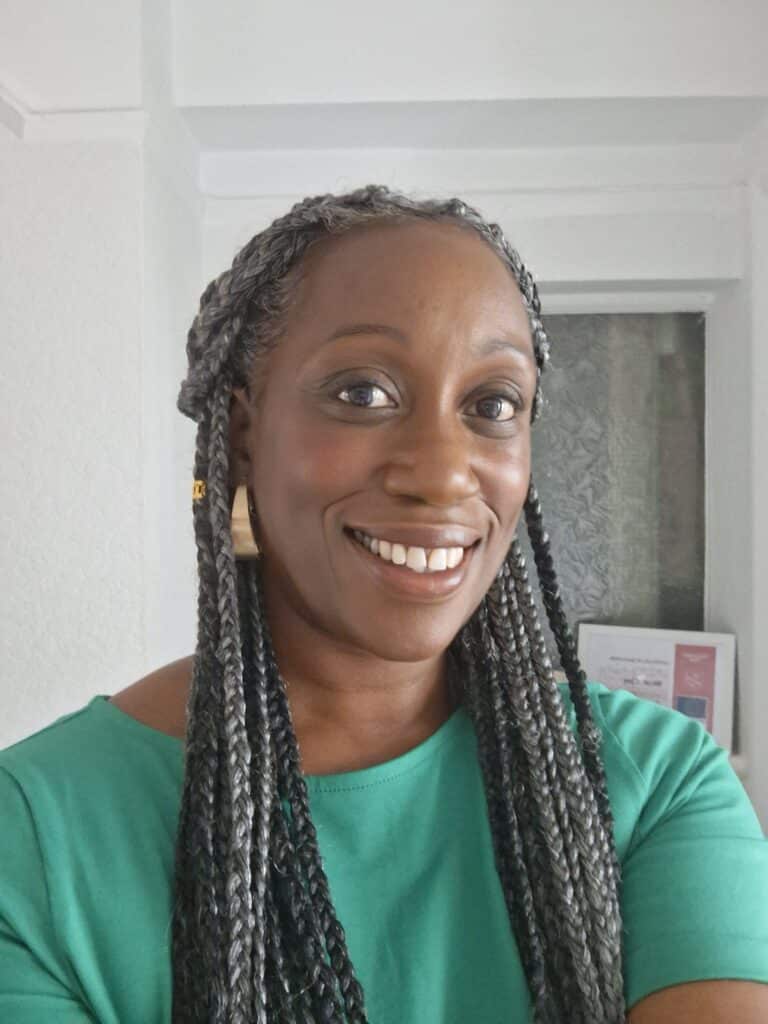Disruptive peace and risk-taking reconciliation
Posted by Difference on October 20, 2025
Racial justice
As someone who works in the area of racial justice, Black History Month is one of my busiest times. There is always a wonderful programme of events to attend, so many opportunities to celebrate and not enough time to experience it all.
This year’s theme is ‘Standing Firm in Power and Pride:’ an opportunity to remember the legacy this work is built on and be encouraged to continue seeking justice, to stand together in collaboration in the midst of a divided world.
The work of racial justice is rooted in seeking peace and reconciliation, but it doesn’t always seem peaceful. It can be disruptive, conspiratorial, confronting. It’s an exercise in standing firm, living courageously and learning to celebrate along the journey.
Peace and reconciliation require risk
Early in my role at Liverpool Diocese, I had a conversation with my line manager about the challenges I was likely to face, and was a little surprised when she told me that the biggest challenge to the work was likely to be me! She pointed out that placing a Black British Jamaican to encourage and empower cultural change in the centre of a White British institution was probably going to create some disruption.
When we work for peace, it disrupts the norm. It challenges us as individuals and communities to do the difficult work of self-reflection and action. We risk reframing our world view as we listen to the stories of others. We risk dismantling systems that serve us but harm others. We risk reckoning with our complicity in upholding systems of power. We risk the isolation of standing apart and being the only loud voice in the room.
Working for peace and reconciliation has always been risky work. Listen to the stories of the Black visionaries who came before us and you’ll realise that you have joined a long line of impactful risk-takers. As we celebrate their stories, we are encouraged that when we take risks we also create hope.
Justice is not like pie – it won’t run out
How do we seek peace and reconciliation when there are so many areas of need? It can often feel overwhelming to see the many people and places where peace is needed, especially when we are unable to make an impact in every place.
When we seek peace for people and places, that is where justice happens. As my colleague Rev Canon Dr Ellen Loudon says “Justice is not like pie.” It won’t run out; it just increases. It creates a coalition of peace-building, justice-focused advocates that can stand firm in hard times. A network of reconcilers that can use their collective power and voices to bring change. Seeking peace and justice is always generative: it creates new ideas, shares learning and experience, and supports the just and peaceful causes of others.
Our part is to put our focus into the areas we are passionate about – to use our skills and talents to work together, looking for that sweet spot of overlap where my need for justice meets your need for justice and together we can create peace for both of us.
It’s time for us to find some co-conspirators with a passion for justice and a heart for peace. We don’t stand alone against the injustice of the world, we stand together.
Reconciliation needs trust-filled relationships
We live in a world of 24-hour availability and next day delivery. It can warp our expectations of reconciliation so that we expect a quick fix. When I read the gospels, I see that Jesus takes time to build relationships. Even when it looks like he should be hurrying, he sits down, eats, listens to stories and shares his wisdom.
Reconciliation is a slow journey and it cannot take place without trusted relationships. Without them, reconciliation easily becomes charity as we seek to help those we consider less fortunate, or lacking in power and capacity. Trusted relationships require difficult, honest conversations, a willingness to recognise and dismantle power structures, and a deep respect based in our shared humanity. It is not fast.
I’m always encouraged by the work of the Triangle of Hope, a reconciliation initiative between the Diocese of Kumasi, Ghana; the Diocese of Liverpool, England and the Diocese of Virginia, USA to repair and reconcile the relationships damaged by the trade in enslaved Africans in the 1700-1800s. Their journey shows the resilience of trusted relationships over many years as they continue the work of reconciliation together, now and in the future.
Let’s make space for honest conversations as we learn that the slow pace of change isn’t the same as no change, and that the relationships we build along the way are the true treasures of this work.
As you celebrate Black History Month, my hope is that this legacy encourages us to stand firm, to share power and to celebrate when others receive justice, trusting that they will stand with us until our justice comes.

Jennie Johnson works for the Diocese of Liverpool as their Racial Justice Officer. In this role she supports Anglican churches and schools across Liverpool Diocese as they work together for racial justice in their communities. Working in partnership with other Dioceses and the national Racial Justice Unit, Jennie leads locally on the implementation of the Church of England’s national strategic vision ‘From Lament to Action’. Jennie is passionate about encouraging the contributions and participation of marginalised groups in every part of church life both locally and nationally.



